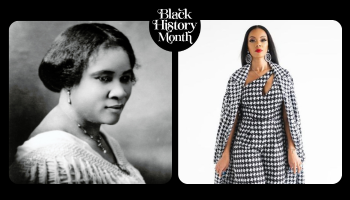Today is the 12th anniversary of the September 11, 2001 terror attacks in New York and Washington D.C.
The attacks killed more than 3,000 people, and shook the country to its core — leading the U.S. into two wars: one in Afghanistan, justified by the attacks, and the other in Iraq, based on a dubious case made by the Bush administration.
Twelve years later, with a new administration in office, and the country once again considering middle action in the Middle East (in fact, in the country next door to Iraq — Syria); we look back on the many ways 9/11 changed everything.
1. Suspicion
African-Americans have long labored under the constant surveillance of police, and the suspicion of our fellow Americans.
And complaints about post 9/11 racial profiling at the airport aren’t just affecting Muslims, they’re impacting blacks (and Hispanics) too.
2. Obama
Barack Obama became the Democratic nominee in 2008, in large part because of his opposition to the Iraq war — a war of choice started by the Bush administration on the false premise that Saddam Hussein had something to do with 9/11.
3. Black troops
A 2005 study by the General Accountability Office found that blacks made up a higher percentage of Army recruits after 9/11 (at nearly 15 percent) than their percentage of the overall population (11.3 percent in 2003),
4. Government jobs
When most people think of post-9/11 lawmaking, they think of the notorious Patriot Act. But in fact, the PATRIOT bill was just one of several laws that rushed through congress after the attacks.
5. Looking inward
The latest NBC/Wall Street Journal poll finds that six in ten Americans oppose military action in Syria, and though African-Americans are more split, with about 47 percent favoring a military strike and 45 opposing it (and black members of congress caught between public opinion and the first black president), the two wars that followed the 9/11 attacks have drained American popular will to act on the international stage.















